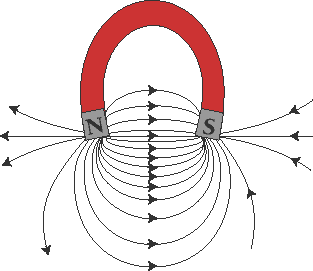| by andrianart |
I’ve been having an interesting
discussion over Facebook with author Robert Bidinotto around the importance of
narrative in our society. It all started with a discussion about Ayn Rand.
Robert’s contention was that, no matter whether you agree with Rand or not, she
changed the popular narrative of her time.
It’s an idea that struck me after
the events here in Ottawa on Wednesday.
The first item on the 10:00 am.
CBC news was that a soldier had just been shot at the War Memorial. I told
others in the office where I work. We were all shocked—it was just a few blocks
away. We all thought of the same things: about Warrant
Officer Patrice Vincent being killed in a deliberate hit-and-run last Monday, and
the supposed ISIS/ISIL message exhorting sympathizers to strike against
Canadian civilians for our warplanes being sent to the Middle East.
The human mind is wired to see
connections and patterns. It’s an evolutionary advantage. So it’s to be
expected that we’d very quickly try to fit the events of last Monday and
Wednesday into a pattern—and one already lives in the zeitgeist, the narrative
most spectacularly exemplified on 9-11: the industrialized, democratic West is
under attack by Islamic terrorists around the world. Now, we have a new idea
added to that narrative because of the Islamic State formerly known as the
Islamic State in Iraq and the Levant formerly known as the Islamic State in
Iraq and Syria: there are supporters embedded in Western societies around the
world—even here in uber-peaceful Canada—who will strike unexpectedly, viciously
and effectively.
The facts do not support that narrative,
however. Just as the facts of our world do not support Rand’s narrative.
The Ottawa shooting does not fit the terrorism narrative.
When I compare these events to
other terror attacks, it makes no sense. If it were a terrorist attack, it
would have to be, thankfully, a remarkably ineffectual one. One fine man is
dead, and that’s a tragedy.
But look at other terrorism
attacks in the West since 2001: New York, Madrid, London, which killed dozens
or even thousands of people. What good it do anyone to shoot an unarmed soldier
standing honour guard? What hope could Bibeau have had to advance any cause by acting
alone, if as violently as he did?
But when you look at this through the lens of mental illness, it makes a lot more sense.
As more facts about Michael Zehaf
Bibeau emerge, it seems his mental state had a lot more to do with his
motivation. He has a history of mental illness and drug abuse. He was homeless
and unemployed. He tried to get incarcerated in Vancouver.
A day after the Ottawa attack
there was a multiple shooting in a school Washington — not linked to terrorism,
ISIS/ISIL or anything else. And none of the analysis of it linked it to terror.
Instead, and rightly, in my opinion, the talk orbits the debate over gun
control.
Maybe if we look at “home-grown
terrorism” from the perspective of mental illness, we can begin to get a handle
on how to deal with it. Why don’t we ask these questions:
- How did Bibeau get a rifle?
- Where did he buy it?
- What if there were some kind of, I don’t know, a list or a database of long guns so we could track who’s buying and selling them, so that if one is used in a crime, we could work out how the criminal obtained the weapon and then take steps to prevent recurrence. Crazy idea, I know, but still—worth thinking about.
Maybe that’s how we can account
for the appeal of an organization like IS/ISIL/ISIS to new converts to Islam in
the West: they have personal histories involving isolation, loneliness, mental
illness and/or substance abuse. And maybe, just maybe, if we addressed those
problems before they manifested as violence, we’d have a less violent world.
Our government is trying to use the events to advance their own agenda.
The Conservative government lost no time
in fitting the attack into their own narrative and using it to advance their
own agenda. At 8:00 p.m. on Wednesday, Prime Minister Stephen Harper said, “Any attack on our soldiers or
our institutions by definition is an attack on our country and our values.” And
the next day in Parliament, he said “our laws and
police powers need to be strengthened in the area of surveillance, detention
and arrest." (CBC news)
Even Opposition leader Tom
Mulcair said the attack was “driven by hatred, and designed to make us hate
others.”
Sorry, Tom: there was no evidence
of that on Wednesday. Only on Sunday did the investigators mention the existence of a video that supposedly reveals Bibeau's political and ideological motivations. And so far, no one outside the investigation team has seen it.
What there is evidence of is
this: the Conservative government wants more power to observe us, and thereby
control us. To detect dissent, in other words. To find those of us who diverge
from their narrative.
We do need to stand on guard. We need to protect ourselves and our rights. But what we need to guard against is not necessarily found overseas. Often, we find it much closer.
Canadians and thinkers of the world: do not fall for the false narrative. We are all we have to protect our freedom of thought and expression.


